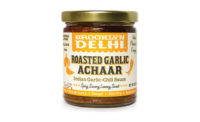Applying Clean Label Values to Food and Beverage Packaging
Consumers are looking critically at retail product packaging with an eye toward environmentally friendly alternatives






“Paper or plastic?” Of course that question is common to supermarket check-out employees preparing to bag a shopper’s goods. Yet more environmentally conscious consumers are asking that question themselves as they pick up various products throughout the store—well before they even reach the supermarket check-out.
Consumer surveys in the United States and the United Kingdom suggest consumers in both regions are looking more critically as retail product packaging with an eye toward more environmentally friendly alternatives.
The Netherlands-based Innova Market Insights tracks a myriad of attributes of new packaged food and beverage products launched globally. In a packaging report released this February, (“Top 10 Packaging Trends for 2019”) Innova identified significant growth in packaging that uses paper-based materials (i.e. paper, carton and cardboard) and citied indexed growth of 40% involving new launches featuring these materials between 2014 and 2018.
In a separate 2018 global Innova Lifestyle Survey, company researchers also delved deeper into related consumer attitudes and behaviors. Results suggest that one in three UK consumers are prepared to pay more for food and beverage brands that have invested in packaging reduction. Similarly, one in three global consumers are willing to pay more for food and beverage products packaged using compostable or biodegradable packaging.
Innova finds consumers worldwide certainly have many new packaging options and related issues. For example, Faithful to Nature, Cape Town, South Africa, offers food packaging that is certified to be 100% home compostable and also marine degradable. Innova shares other examples from JUST Goods Inc., New York, N.Y.; my muesli GmbH, Berlin, Germany; and Arla Foods amba, Viby, Denmark.
JUST Goods says its JUST water packaging cartons are made with 54% paper and 28% plant–based plastic. The resulting beverage container is made with 74% less CO2 emissions versus plastic bottles of similar size, the company says. my muesli also uses a paper-based cylinder for its Bircher style product. Packaging is made with with 90% recycled paper and even features a paper bottom, to facilitate single-stream recyclability. Last but not least Arla uses a 100% unbleached brown carton for one of its drinkable yogurt offerings. Even the cap is made with bio-plastics derived from sugarcane.
One of those researchers also studying US consumer attitudes and behaviors is EcoFocus Worldwide, Lancaster, Pa. Founder Linda Gilbert says she believes her firm’s latest EcoFocus Trend Survey show the next generation of “clean” involves the marriage of health and environmental responsibility.
“Consumers are turning their attention to clean label products that also offer ‘clean’ packaging,” They’re wanting brands to think about their packaging as an extension of their healthy ingredient list and eco-friendly brand equities,” she says.
The firms’s 2018 study polled 4,000 nationally representative adults, ages 18-65 years. Results suggest that 71% of US grocery shoppers, ages 18 to 65 years, agree that foods and beverages with healthier ingredient lists should use packaging materials that are healthier too. Glass and paper are perceived as the healthiest, Styrofoam and plastic the least healthy.
A majority of grocery shoppers believe that packaging can leave undesirable chemicals in their foods and beverages. They expect that Styrofoam, plastic and metal materials are most likely to do so, while glass and paper are least likely.
On the environmental front, 68% of grocery shoppers consider it important to choose foods and beverages that are packaged responsibly. For most shoppers, glass and paper packaging are considered to have the least negative environmental impact. Recyclable and renewable materials are in favor, especially for products offering natural ingredients. Surveys show 61% of grocery shoppers agree natural and organic products need to do a better job of packaging their products with recyclable materials.
As shoppers look for ingredients and packaging to align, watch for products with plant-based ingredients also to incorporate plant-based packaging. Already, 62% of grocery shoppers want to learn more about plant-based packaging. Packaging made with paper from sustainably grown trees and packaging made from sugar cane bioplastic are considered eco-friendly by 83% and 69% of grocery shoppers respectively.
“Ultimately for three in four grocery shoppers, the benefit of clean ingredients delivered in clean and responsible packaging is better personal health,” says Gilbert.
Looking for a reprint of this article?
From high-res PDFs to custom plaques, order your copy today!









